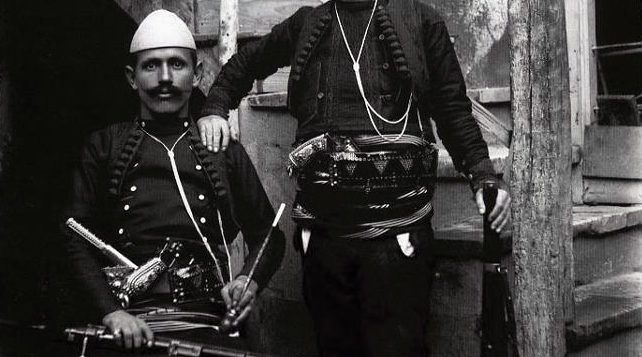Shaqir Gashi, 80 years old next year, went from Drenica to Fifth Avenue, learned English because “in America even God speaks English,” as his black bricklayer friend told him, and became one of the founders of a truly American lobby on behalf of Kosovo.
Oda
[Excerpt from the long interview with Shaqir Gashi.]
The stories of our oda [men’s chamber], the oda of youth are important, but I will speak about my father’s oda, which we had there. Wise people came there, they would sit, they would speak about besa [1]and honor, about wars, about national heroes, they would speak about everything. They would tell very interesting stories, for instance when we were there as kids, we did not listen much because we did not interfere much. I remember as if it were today when they were telling stories to each other, those stories had to follow the theme of the conversation, and the moral of the story had to be told.
Now, maybe it does not relate to what we are talking about, but I will tell you some stories that I heard then. For example, the elderly of those times used to come to our oda – Rexhe Lutani, Xhemë Lutani, Haris Aliti, Sokol Binaku, Sandokan’s father,[2] the ones from Tërgali would come, people from all over the places where there were Albanians would come, the elderly of the time would get together and talk. For example, the master of the house, he was… he, when he had guests, he would prepare coffee himself for fun. Then for instance other guests would come, I remember a very interesting detail, maybe it should be told. I heard that in our oda, when a prestigious guest came, the master of the house would take a cigarette and light it up on the cinders and say, “Welcome, guests. Where do you come from?” They would say, “We are from a distant place,” either from Dukagjin, or from the Mitrovica side. He would say, “Very well, welcome.” The old man would ask, “Are you in the party?” He said, “Yes uncle, I am in the party.” “Are you deep or plitko,[3] – deep or shallow?” (laughs) He said, “No, shallow!” And he said, “If you are shallow, we will talk.” And then they would start with the stories.
[1] In Albanian customary law, besa is the word of honor, faith, trust, protection, truce, etc. It is a key instrument for regulating individual and collective behavior at times of conflict, and is connected to the sacredness of hospitality, or the unconditioned extension of protection to guests.
[2] Alias of Abedin Rexha (1969-1998), a Kosovo Liberation Army fighter, also from Vojnik, killed in a shoot-out with other fighters.
[3] Plitko, Serbian for shallow.
